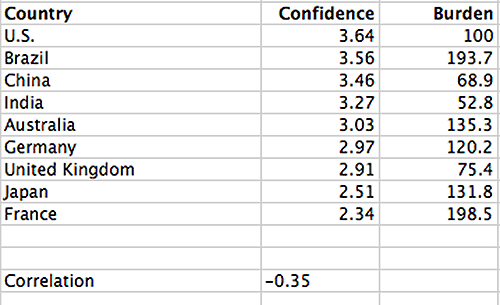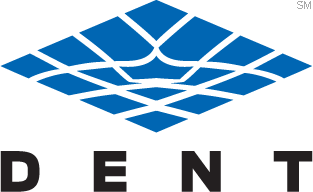The "Pigeon" Problem: Linking Taxation & Venture Capital Confidence
The Economist recently claimed that Europe suffers from a "chronic failure to encourage ambitious entrepreneurs." It alludes to how European entrepreneurs may be at a disadvantage when trying to make their "dent." How much of that failure is based on tax policy?There's a lot of buzz emanating from the tech community surrounding the anticipated tax hikes that will hit French investors and entrepreneurs particularly hard. Noted Silicon Valley "Frenchepreneurs" Loic Le Meur and Jean-Louis Gassée have provided their uniquely relevant insights on the topic:French Entrepreneurs RevoltFrench Start-Ups Worry About Hollande's PrioritiesWhile it's intuitive that increasing taxes on investment activity would reduce the level of confidence of ROI (success) in that activity, we decided to see if we could detect a more formal correlation between those two.We were fortunate to find relevant studies from two of the "big four" audit firms, Deloitte and KPMG. Cross referencing their data, we came up with some correlation stats. The studies we found were:KPMG's Guide to International Business Location Costs:Competitive Alternatives 2012 Special Report: Focus on TaxAs stated by KPMG, "This report specifically assesses the general tax competitiveness of the 14 study countries, with an emphasis on tax costs in 55 major international cities."andGlobal Trends in Venture Capital: How Confident Are Investors?For this report, Deloitte gathered confidence data from 440 venture capital, private equity, and growth equity investors in the Americas, Europe, Asia Pacific, and Israel.The core tables we cross referenced were: Note Deloitte found France to positioned in last place.andTaxation of "Digital" industry investments (based on two model business operations: a software development firm and a video game production studio.)
Note Deloitte found France to positioned in last place.andTaxation of "Digital" industry investments (based on two model business operations: a software development firm and a video game production studio.) Note KPMG found France to ranked the lowest in capital friendliness.Just eyeballing these two charts would lead the logically-minded to conclude that these things are aligned, but if you run the numbers on the countries for which both numbers exist -- we see a non-trivial correlation of .35. Thats the same figure we see when aligning LSAT test scores to law school grades.
Note KPMG found France to ranked the lowest in capital friendliness.Just eyeballing these two charts would lead the logically-minded to conclude that these things are aligned, but if you run the numbers on the countries for which both numbers exist -- we see a non-trivial correlation of .35. Thats the same figure we see when aligning LSAT test scores to law school grades. Naturally, both conditions could be caused by another factor not captured here. A cultural bias against entrepreneurs for example, could result in high taxes and a lack of interest by investors.How does government provide the incentives (or disincentives) for it's citizens to "Dent the Universe"? This is something we'll discuss at Dent 2013 in Sun Valley.
Naturally, both conditions could be caused by another factor not captured here. A cultural bias against entrepreneurs for example, could result in high taxes and a lack of interest by investors.How does government provide the incentives (or disincentives) for it's citizens to "Dent the Universe"? This is something we'll discuss at Dent 2013 in Sun Valley.
